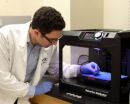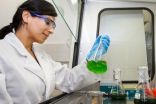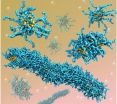(Press-News.org) The smart phone has changed our behavior, sometimes for the better as we are now able to connect and engage with many more people than ever before, sometimes for the worse in that we may have become over-reliant on the connectivity with the outside world that these devices afford us. Either way, there is no going back for the majority of users who can almost instantaneously connect with hundreds if not thousands of people through the various social media and other applications available on such devices and not least through the humble phone call.
However, our dependence brings anxiety. The loss of one's smart phone not only represents an immediate disconnection from one's online contacts but is also a potential privacy and security risk should the lost phone wend its way into the hands of a malicious third party. Writing in the International Journal of Mobile Communications, a Canadian team outlines the possible coping mechanisms that might be needed following loss or theft and the security problems that the user might face. The researchers point out that the same anxieties apply equally to lost or stolen laptops, tablet computers and other digital devices.
Zhiling Tu, Yufei Yuan and Norm Archer of McMaster University in Hamilton, Ontario, explain that the convenience of mobility, wireless communication and the information processing power of smart phones and other portable digital devices has led to more and more people carrying with them valuable data assets wherever they go. These assets may include personal and business contacts, private pictures and videos, meeting and lecture notes and the like, banking details, utility statements, company spreadsheets and much more. All such assets are potentially sensitive to abuse by third parties.
The researchers add that as many companies now have a BYOD (bring-your-own-device) policy rather than dispensing a standard corporate device to all employees there are additional security issues that arise from their being centralized control of the data on a given device. The value of lost hardware might be negligible when compared to the loss of sensitive or proprietary data. Perhaps more troubling is that while there are various countermeasures that can be used to cope with mobile device loss and theft, users are either unaware of their existence or unwilling to use them. The cost and convenience of security countermeasures also need to be weighed up.
The team has investigated how general mobile phone users might not cope with the threat of losing their device. They found that a few active and security-conscious users were aware of countermeasures but many users were either not aware of "time bomb" data deletion settings and remote device locks and such or were simply in denial of the risk of their losing their phone. Their findings suggest that an awareness campaign might be needed to encourage general users to make their devices more secure and that organizations must enforce certain features on their employees and members to protect sensitive data that might be on those devices beyond their direct control.
INFORMATION:
Tu, Z.L., Yuan, Y.F. and Archer, N. (2014) 'Understanding user behaviour in coping with security threats of mobile device loss and theft', Int. J. Mobile Communications, Vol. 12, No. 6, pp.603.
Smartphone-loss anxiety disorder
2014-08-21
ELSE PRESS RELEASES FROM THIS DATE:
ADHD children make poor decisions due to less differentiated learning processes
2014-08-21
Which shirt do we put on in the morning? Do we drive to work or take the train? From which takeaway joint do we want to buy lunch? We make hundreds of different decisions every day. Even if these often only have a minimal impact, it is extremely important for our long-term personal development to make decisions that are as optimal as possible. People with ADHD often find this difficult, however. They are known to make impulsive decisions, often choosing options which bring a prompt but smaller reward instead of making a choice that yields a greater reward later on down ...
Learning to play the piano? Sleep on it!
2014-08-21
According to researchers at the University of Montreal, the regions of the brain below the cortex play an important role as we train our bodies' movements and, critically, they interact more effectively after a night of sleep. While researchers knew that sleep helped us the learn sequences of movements (motor learning), it was not known why. "The subcortical regions are important in information consolidation, especially information linked to a motor memory trace. When consolidation level is measured after a period of sleep, the brain network of these areas functions with ...
Electric sparks may alter evolution of lunar soil
2014-08-21
DURHAM, N.H. –- The moon appears to be a tranquil place, but modeling done by University of New Hampshire and NASA scientists suggests that, over the eons, periodic storms of solar energetic particles may have significantly altered the properties of the soil in the moon's coldest craters through the process of sparking—a finding that could change our understanding of the evolution of planetary surfaces in the solar system.
The study, published recently in the Journal of Geophysical Research-Planets, proposes that high-energy particles from uncommon, large solar storms ...
New feeding tube connectors will improve patient safety
2014-08-21
New feeding tube connectors, designed by an international standards process, will be available soon and will improve patient safety.
According to an invited review published in the OnlineFirst version of Nutrition in Clinical Practice (NCP), the official journal of the American Society for Parenteral and Enteral Nutrition (A.S.P.E.N.), the new connectors will greatly reduce the occurrence of misconnection that can be harmful and even fatal to patients.
Small-bore connectors, which are used to join medical devices, components, and accessories to deliver fluids or gases, ...
Emergency department nurses aren't like the rest of us: New study
2014-08-21
Emergency department nurses aren't like the rest of us – they are more extroverted, agreeable and open – attributes that make them successful in the demanding, fast-paced and often stressful environment of an emergency department, according to a new study by University of Sydney.
"Emergency nurses are a special breed," says Belinda Kennedy from Sydney Nursing School, a 15 year critical care veteran who led the study.
"Despite numerous studies about personalities of nurses in general, there has been little research done on the personalities of nurses in clinical specialty ...
Louisiana Tech University researchers use 3D printers to create custom medical implants
2014-08-21
RUSTON, La. – A team of researchers at Louisiana Tech University has developed an innovative method for using affordable, consumer-grade 3D printers and materials to fabricate custom medical implants that can contain antibacterial and chemotherapeutic compounds for targeted drug delivery.
The team comprised of doctoral students and research faculty from Louisiana Tech's biomedical engineering and nanosystems engineering programs collaborated to create filament extruders that can make medical-quality 3D printing filaments. Creating these filaments, which have specialized ...
Water and sunlight the formula for sustainable fuel
2014-08-21
An Australian National University (ANU) team has successfully replicated one of the crucial steps in photosynthesis, opening the way for biological systems powered by sunlight which could manufacture hydrogen as a fuel.
"Water is abundant and so is sunlight. It is an exciting prospect to use them to create hydrogen, and do it cheaply and safely," said Dr Kastoori Hingorani, from the ARC Centre of Excellence for Translational Photosynthesis in the ANU Research School of Biology.
Hydrogen offers potential as a zero-carbon replacement for petroleum products, and is already ...
Researchers develop models to study polyelectrolytes, including DNA and RNA
2014-08-21
Researchers from North Carolina State University have developed a novel and versatile modeling strategy to simulate polyelectrolyte systems. The model has applications for creating new materials as well as for studying polyelectrolytes, including DNA and RNA.
"Our new technique allows us to model much larger and more complex polyelectrolyte systems, and to do so much more quickly," says Nan Li, lead author of a paper on the work and a Ph.D. student in NC State's Department of Materials Science and Engineering. "This is a big step forward for this field."
Polyelectrolytes ...
Adherence to diet can be measured from blood
2014-08-21
New results from the Nordic SYSDIET study show that it's possible to assess dietary compliance from a blood sample. This is especially useful in controlled dietary intervention studies investigating the health benefits of specific diets. So far, such studies have mainly relied on the participants' self-reported dietary intake, which is often biased, making it more difficult to assess the real health benefits.
In the recently published study authored by Dr Matti Marklund and coworkers, the researchers were able to identify the study participants with the greatest apparent ...
A novel pathway for prevention of heart attack and stroke
2014-08-21
Finnish researchers have found that the low-expression variant of fatty acid-binding protein 4 (FABP4), which is particularly common among Finns, reduces the risk of heart attack and stroke. The finding revealed a promising new way to customise a potentially preventive drug for atherosclerosis.
Led by Professor Perttu Lindsberg, the long-term research project of the Department of Neurology at the Hospital District of Helsinki and Uusimaa (HUS) focuses on carotid atherosclerosis. It is a joint effort involving the University of Helsinki, the Helsinki University Central ...


